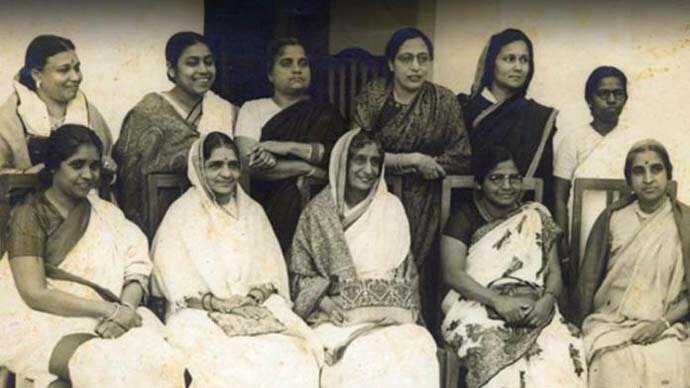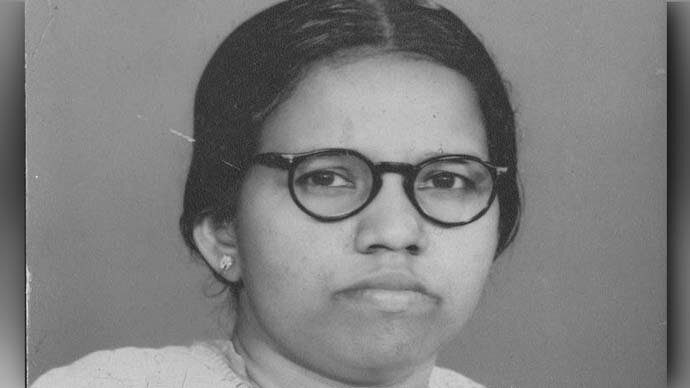Even as awareness of Dalit struggles in the international space is increasing, recognition of Dalit leaders and revolutionaries is still very limited. The contemporary narrative of gender in India hardly encapsulates the Dalit component, despite having such towering personalities who defied conventional wisdom and led a revolution in their own realm.
Today (20th July) is the 42nd Punyatithi of the only Dalit woman member of the Constituent Assembly of India, Dakshayani Velayudhan. The group of men and women who drafted the Indian Constitution were people of great eminence with vision and foresight. They were chosen to draft perhaps the most important document in the history of independent India as they had shown their dedication and loyalty to the country as well as great intellectual prowess.
At the young age of 34, Dakshayani had already proved her mettle as an intellectual. Not only did she get herself heard in the premier decision-making body of the independent nation but also ensured that the rights and opinions of the marginalized were accounted for.
There are many firsts associated with the life of Dakshayani Velayudhan. To start with, she was the first Dalit woman graduate of India. Recounting her initial days of struggle, Dakshayani had said, “I was the only girl student for B.Sc Chemistry or for any science subjects in the college. It was ‘sheer luck’ to get higher education. (In the laboratory) an upper caste teacher did not show me experiments — I learned things by looking from a distance and graduated with a high second class in 1935. In July 1935, I was posted as an L-2 teacher in the High School Peringothikara in Trichur District.” It is important to confront such hard realities that are still being faced by Dalits across the country.
Inspired by Ayyankali — one of the greatest social reformers of the 20th century, Dakshayani set out on the journey to address the civilizational fault lines of our society.

On her 42nd death anniversary today, we must remember her noteworthy contributions and initiate a public conversation on the status of Dalit women in the country who are facing the intersectional struggles of caste and gender on a daily basis.
In one of her earlier speeches in the Cochin Legislative Council, Dakshayani voiced her concerns for the depressed classes. She said that unless untouchability was legally abolished and supplemented with strong welfare measures for the upliftment of the marginalized, the usage of the term ‘Harijan’ for them is like addressing dogs as Napoleon. ‘Harijan’ was a patronizing term then and it still is now.
As someone from the fraternity, I assert that every community must have the right to determine their own identity. Every identifier has a trajectory and a history, that speaks of the incredible journey of those who embrace the term. Whether it is depressed classes, scheduled caste, Harijan, or Dalits. The word “Dalit” is an assertion and a determination to be heard. The new-age Dalit struggle is no longer limited to a seat in government-sponsored educational institutions and employment.
The life and times of Dakshayani need to be studied to generate intellectual curiosity towards the struggles and rise of Dalit women. The Dalit movement today is ill-advisedly stuck in the past. With the Constitution as a fundamental document, Dalits across the country must have a sense of ownership in India not only because of the contributions of Ambedkar but also because of the hard work of leaders like Dakshayani, Babu Jagjivan Ram and many others who ensured a safe, secure and a sustainable future for the subalterns.
Unfortunately, the intellectual establishment in the post-independent India worked hard to promote a single individual, and thereafter a family, to make them sole custodians of the Independence struggle. The sheer amount of academic investment in promoting Pandit Nehru and the Nehru-Gandhi family reeks of a deeper conspiracy to progressively obliterate the insurmountable contributions of the thousands of other leaders of the freedom struggle. Dakshayani too has been a victim along with many other unsung leaders, who have been systematically erased from the pages of history.
Dignity, respect, and equality in everyday interaction are what the new-age Dalit women and men like me aspire for. The civil society, political class, and the academic establishments must realize this and be willing to share positions for the socially-marginalized and historically oppressed people in the structures of power and privilege.
Editors Note – This article was written by Guru Prakash published in shaktiva, Guru Prakash is an Assistant Professor of Law in Patna University and an adviser for Dalit Indian Chambers of Commerce & Industry (DICCI)

